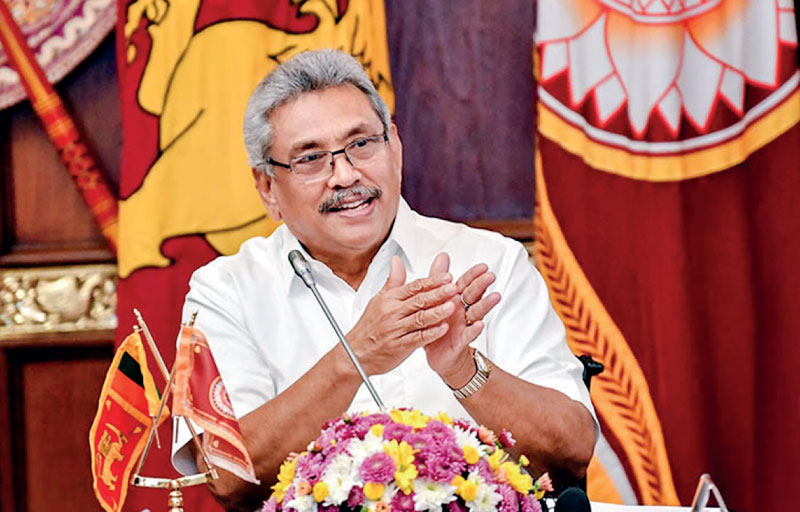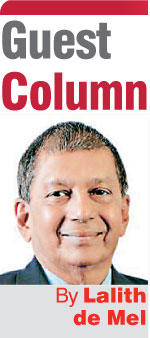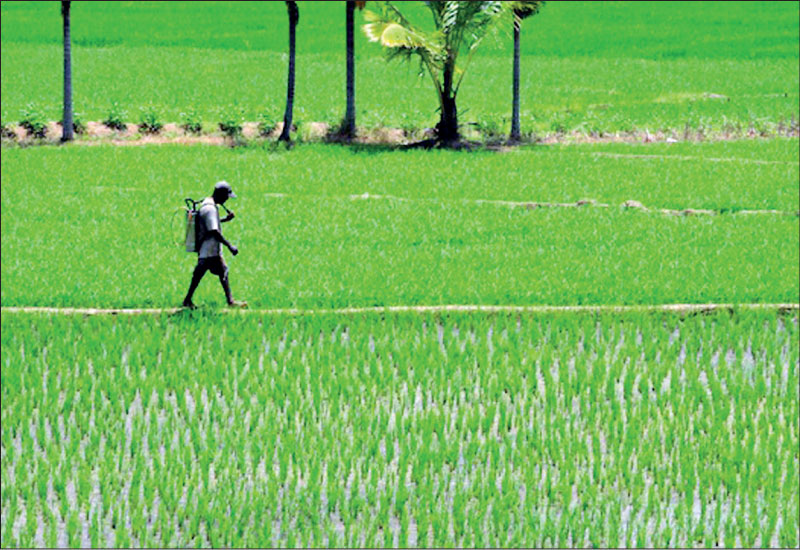Monday Feb 23, 2026
Monday Feb 23, 2026
Wednesday, 16 March 2022 00:38 - - {{hitsCtrl.values.hits}}

President Gotabaya Rajapaksa
 In the President’s Vistas of Prosperity, he said: “In order to guarantee the people’s right to such safe food, the entire Sri Lankan agriculture will be promoted to use organic fertilisers during the next 10 years.”
In the President’s Vistas of Prosperity, he said: “In order to guarantee the people’s right to such safe food, the entire Sri Lankan agriculture will be promoted to use organic fertilisers during the next 10 years.”
“The farming community… will be promoted to shift gradually into a complete system using entirely carbonic fertiliser.” That was an abundantly sensible approach.
Then quite suddenly at the UN Food Systems summit in Rome in July 2021 the President said he had banned the import of artificial fertilisers, pesticides and weedicides. He said he hoped Sri Lanka’s example will help inspire more countries to take the bold steps required to sustainably transform the world’s food system.
As the first country to ban the import of artificial fertilisers, he became a world figure and was on a pedestal. But sadly, not for long as the pedestal toppled. The great initiative imploded in Sri Lanka with a great roar. The intriguing question is why did the President ignore his own sensible progressive road to a green economy as set out in his Vistas of Excellence and Splendour.
Lessons from the instant green saga
In the final analysis, it is clear that it was a textbook case of bad management. Good management is researching the facts and making decisions based on this information to ensure that the planned desired outcome is achieved. In the private sector it is essential to follow this fact-based approach (and to ignore the gut-based instincts of important players) to protect and grow the shareholders’ investment. This is the fundamental obligation of all those responsible for managing any enterprise in the private sector.
In the instant green saga the leaders were clearly unaware of the impact on agriculture yields and of the reaction of the farming community.
Going green in the private sector
Let’s look at the green saga as it would have been seen by a private company manufacturing chemical fertilisers. It would have kept continuously under review the developing global view of the need to move to organic fertilisers.
If they saw an emerging trend towards green agriculture, which could affect their chemical fertiliser business they would explore adding organic fertilisers to the range they market. As a first step they will research the particular requirements of nutrients by crops now receiving them through chemical fertilisers. They would aim to develop organic fertilisers that would provide the same nutrients that the crops now receive through their chemical fertilisers. If they succeed it will be a seamless transition from chemical to organic.
If they cannot develop a complete organic version, they will seek to optimise the organic component as far as possible without affecting the yield of crops. They will research the response of both crops and farmers. The research will probably tell the story that farmers are unwilling to accept lower yields and therefore lower income to save the planet in the long term. The company will form a strategy to accommodate these findings and will offer both chemical and organic fertilisers and let the farmers change at their pace.
Why did the President rush to make what became a disastrous decision. The thought that comes to mind and does not go away is that someone who wanted to damage the image of the President sold him the idea of banning fertilisers and becoming a green economy overnight.
Selling a pup
This brings to mind some well-known expressions. In England a popular expression is “Sold a pup”. A man wanted to buy a piglet and he was given a sack with what he believed was a piglet. When he went home and opened it there was no piglet and only a dead pup.
We have two Sri Lankan expressions that capture the same scenario. One is “Gave him a D rope”. The other is the Sinhala expression “Dunna dirachcha lanuwak”. The question is who gave the President a “dirachcha lanuwak” or a D rope or sold him a pup?
The old English expression “sold a pup” came about to describe a scenario where someone was deceived and had believed he bought a pup but when he opened the sack it was a dead pup. This expression is also used where one buys into a theory in the belief that it will help him and then finds that it is a worthless idea. This expression came to mind when the President decided to create a green economy instantly and to announce it to the whole world. I wondered whether someone had sold the President.
